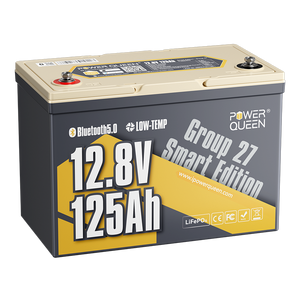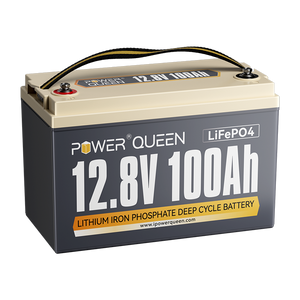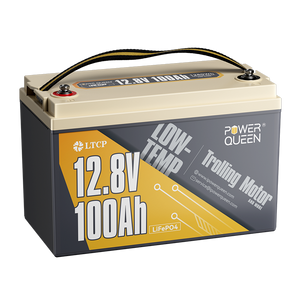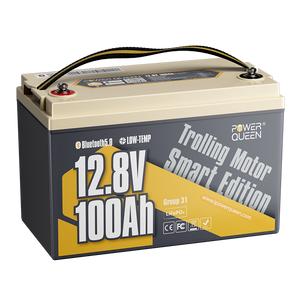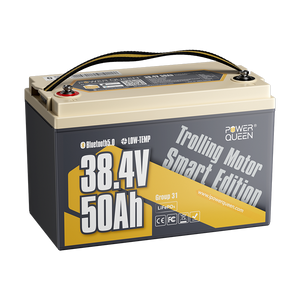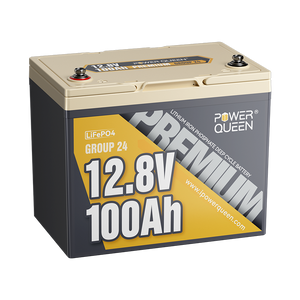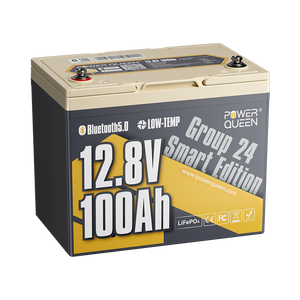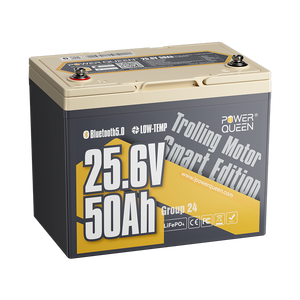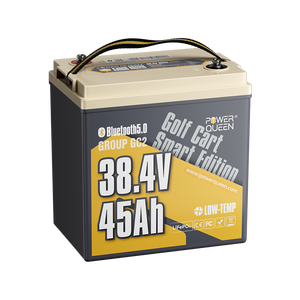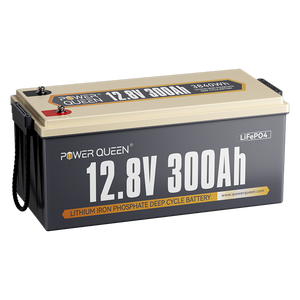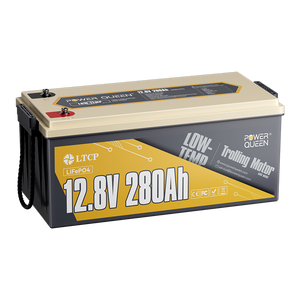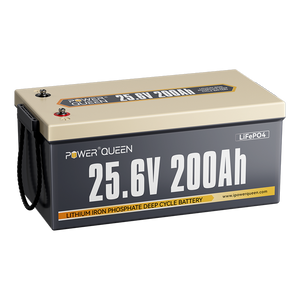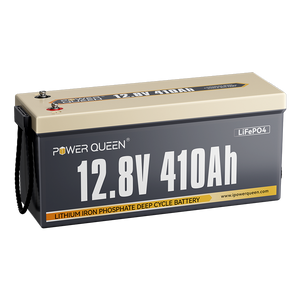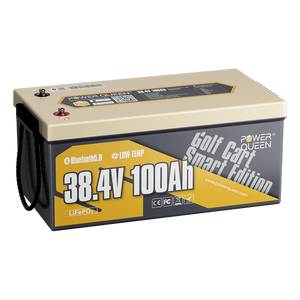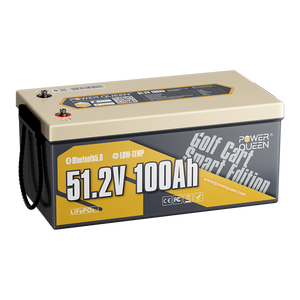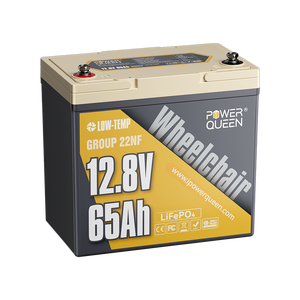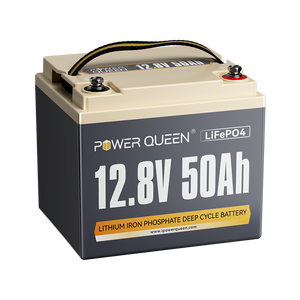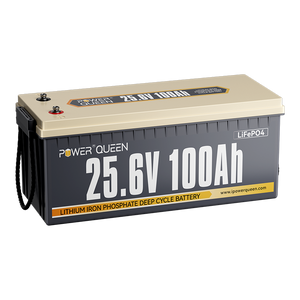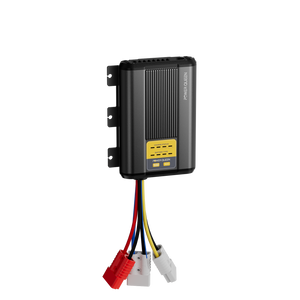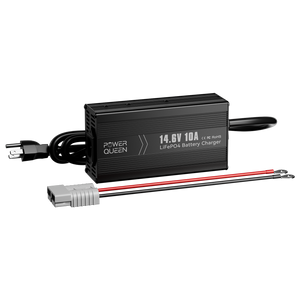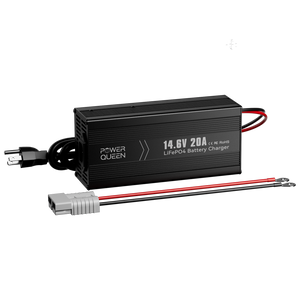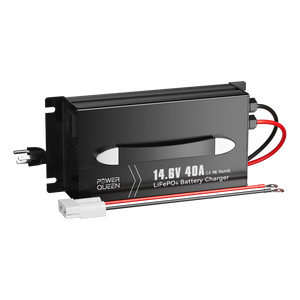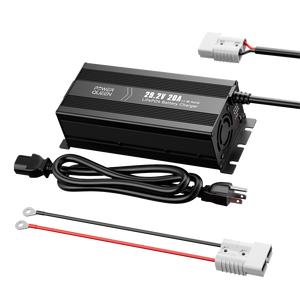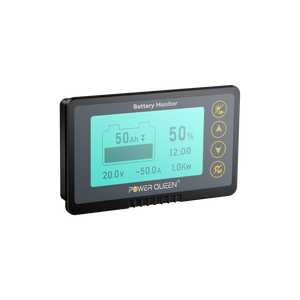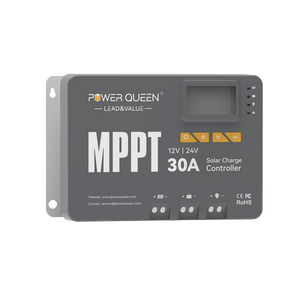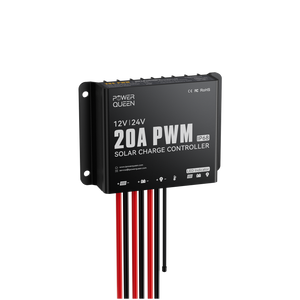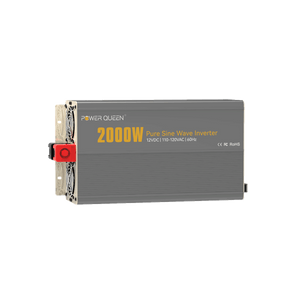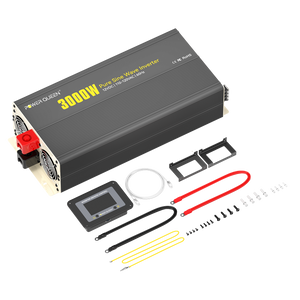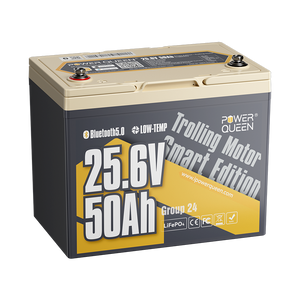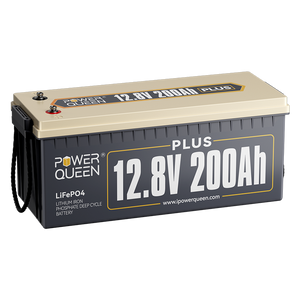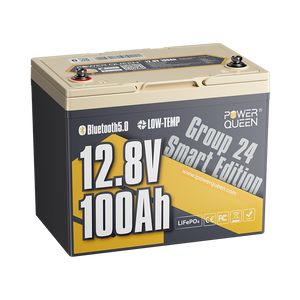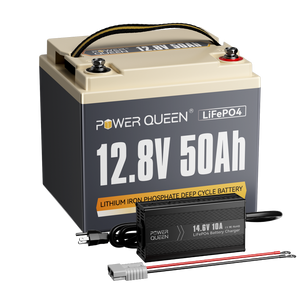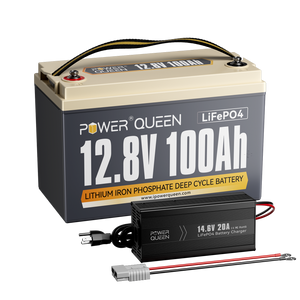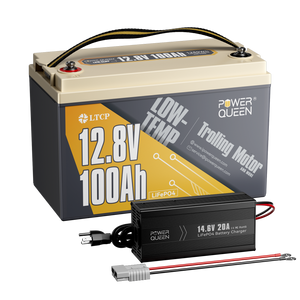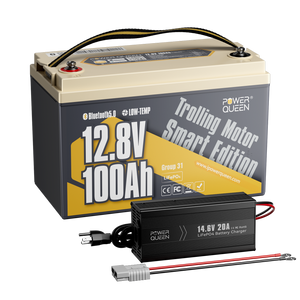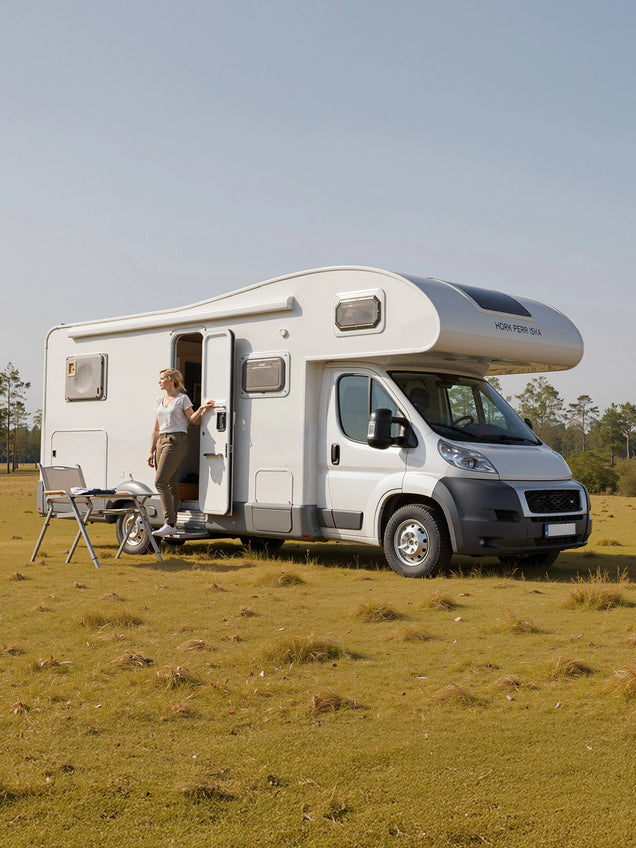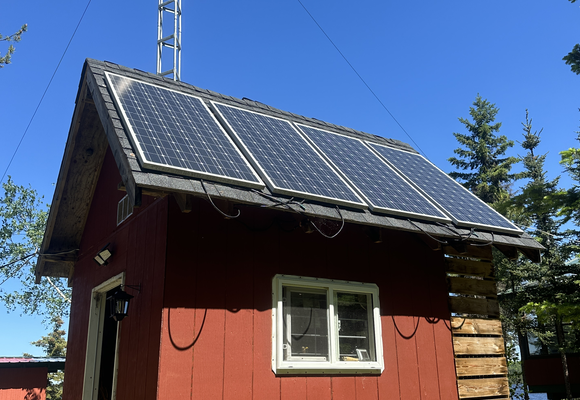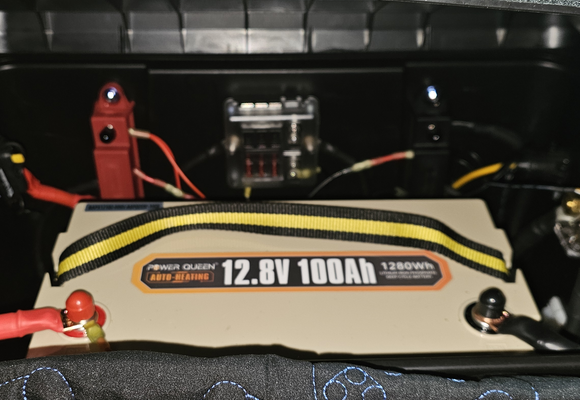Lead Acid vs Lithium Ion Battery: What's the Difference?
Lithium and lead-acid batteries are two of the most common deep-cycle battery types available today. But how do you know which one is better for your boat, RV, solar setup, or commercial use?
In this article, we’ll provide a clear comparison of lithium and lead-acid batteries. You’ll get the information you need to decide which battery comes out on top for your specific needs.
Table of Content
- Part 1. How do Lithium-ion and Lead-acid Batteries Work?
- Part 2. Lithium-ion Battery vs Lead Acid Battery
- 2.1 Lithium-ion Battery vs Lead Acid Battery Price
- 2.2 Lead Acid Battery vs Lithium-ion Battery Life
- 2.3 Lithium-ion vs Lead Acid Cold Weather
- 2.4 Lead Acid Battery vs Lithium Ion Battery Charger
- Part 3. Why Lithium Batteries Are Better
- Part 4. Why Choose the Power Queen Lithium Battery
- Part 5. In Conclusion
- Part 6. FAQ
Part 1. How do Lithium-ion and Lead-acid Batteries Work?
When comparing battery technologies, it's essential to understand how lithium-ion batteries work and the working principle of lead-acid batteries. Both types of batteries store and release energy through electrochemical reactions, but their materials and processes differ significantly.
1.1 How Lithium-ion Batteries Work
Lithium-ion batteries use electrochemical reactions to store and release energy. They have three main parts: the anode (usually graphite), the cathode (often lithium metal oxide), and the electrolyte (a lithium salt solution). When you charge the battery, lithium ions move from the cathode to the anode. During discharge, the ions return to the cathode, providing power to your devices. This design allows for high energy density, meaning they pack a lot of power into a small size.
1.2 How Lead-acid Batteries Work
Lead-acid batteries have two main parts: an anode made of spongy lead and a cathode made of lead dioxide. These plates sit in a mixture of sulfuric acid and water. When charging, an external power source pushes electric current through the battery, converting lead sulfate back into lead and lead dioxide. During discharge, a chemical reaction occurs between the lead plates and sulfuric acid, producing lead sulfate and water while generating electrical energy.
Generally, lithium-ion batteries outperform lead-acid batteries due to their reliability and efficiency. However, for small off-grid storage systems that aren’t used often, cheaper lead-acid batteries can be a more suitable option.
Part 2. Lithium-ion Battery vs Lead Acid Battery
|
Features |
Lithium-Ion Batteries |
Lead-Acid Batteries |
|
Operating Temperature Range |
-4°F to 140°F |
32°F to 104°F |
|
Lifespan (Cycles) |
~4,000+ cycles |
~500 cycles |
|
Flexibility in Charging |
More adaptable to charging rates |
Stricter charging requirements |
|
Cost |
Higher initial cost |
Lower initial cost |
|
Durability |
More rugged and reliable |
Less durable, more susceptible to damage |
|
Charging Method |
Constant current and constant voltage charge |
Constant voltage charge |
|
Charging Speed |
Faster |
Slower |
|
Resting Voltage |
12.8 volts (4 cells at 3.2 volts each) |
12 volts (6 cells at 2 volts each) |
|
Risk of Overcharging |
No, designed to prevent overcharging |
Yes, can overcharge if connected for too long |
|
Efficiency |
More efficient |
Less efficient |
|
Trickle Charge |
No trickle charge needed |
Requires a trickle charge after a full |
|
Maintenance |
Requires specialized charger |
Less specialized; more forgiving |
|
Best Use Cases |
Applications needing quick charge and safety |
General applications |
2.1 Lithium-ion Battery vs Lead Acid Battery Price
Lithium-ion batteries offer significant differences in both price and total value compared to lead-acid batteries. Lithium-ion batteries have higher upfront costs, with a typical system price of around €20,000 for a 50 kWh capacity. Lead-acid batteries, while initially cheaper, require multiple installations and replacements over time. Lithium-ion batteries cost around €0.15 per kWh of usable electricity, while lead-acid batteries cost €0.42 per kWh.
The total cost for the same usable capacity comes to around €60,000. Taking into account installation and shipping costs, the total cost of a lithium-ion system is around €23,000, while the lead-acid system costs €78,000.
In contrast, lithium-ion batteries are more durable than lead-acid batteries. For example, the Power Queen 12V lithium battery has a higher energy efficiency and lifespan, making it a smart choice for RVs, boats, and solar systems.
2.2 Lead Acid Battery vs Lithium-ion Battery Life
When comparing battery lifespans, lithium-ion batteries clearly outperform lead-acid batteries. The lifespan of a battery is measured in cycles—the number of times it can be discharged and recharged. Lead-acid RV batteries typically last for a few hundred cycles, with most ranging from 300 to 1,000 cycles. In contrast, lithium-ion RV batteries can last for thousands of cycles, with some offering up to 5,000 cycles.
To illustrate the difference, lead-acid batteries usually have a lifespan of 2 to 5 years, while lithium-ion batteries can last 10 years or more.
Additionally, lithium-ion batteries are more rugged and handle harsh conditions better than their lead-acid counterparts. They also maintain efficiency longer, typically operating at 95% efficiency compared to 80-85% for lead-acid batteries. This longer lifespan and higher efficiency make lithium-ion batteries a superior choice for energy storage.
2.3 Lithium-ion vs Lead Acid Cold Weather
When comparing lithium-ion and lead-acid batteries for cold weather use, lithium-ion batteries outperform. They operate effectively in temperatures as low as -4°F, maintaining 95-98% of their rated capacity, whereas lead-acid batteries struggle below 32°F, dropping to 70-80% capacity. Lithium-ion batteries can also charge with proper precautions in cold weather, while lead-acid batteries have very limited charging capability in the cold.
While lithium-ion batteries come with a higher initial cost, their greater durability, adaptability, and overall performance in cold conditions make them a better investment for long-term use. For applications like off-grid systems, RVs, and cold climates, lithium-ion batteries—like the Power Queen series—are the more reliable choice.
![⚡[Final $189]⚡Power Queen 12V 100Ah Low - Temp Deep Cycle Lithium Battery - Power Queen US](//ipowerqueen.com/cdn/shop/files/PQ-12.8V100Ah-TM-A100_3b77bbf8-7348-456c-94ff-343e88acffe0.jpg?crop=center&format=webp&v=1769159385&width=400)
![⚡[Final $189]⚡Power Queen 12V 100Ah Low - Temp Deep Cycle Lithium Battery - Power Queen US](http://ipowerqueen.com/cdn/shop/files/PQ-12.8V100Ah-TM-A100_3b77bbf8-7348-456c-94ff-343e88acffe0.jpg?crop=center&format=webp&v=1769159385&width=400)
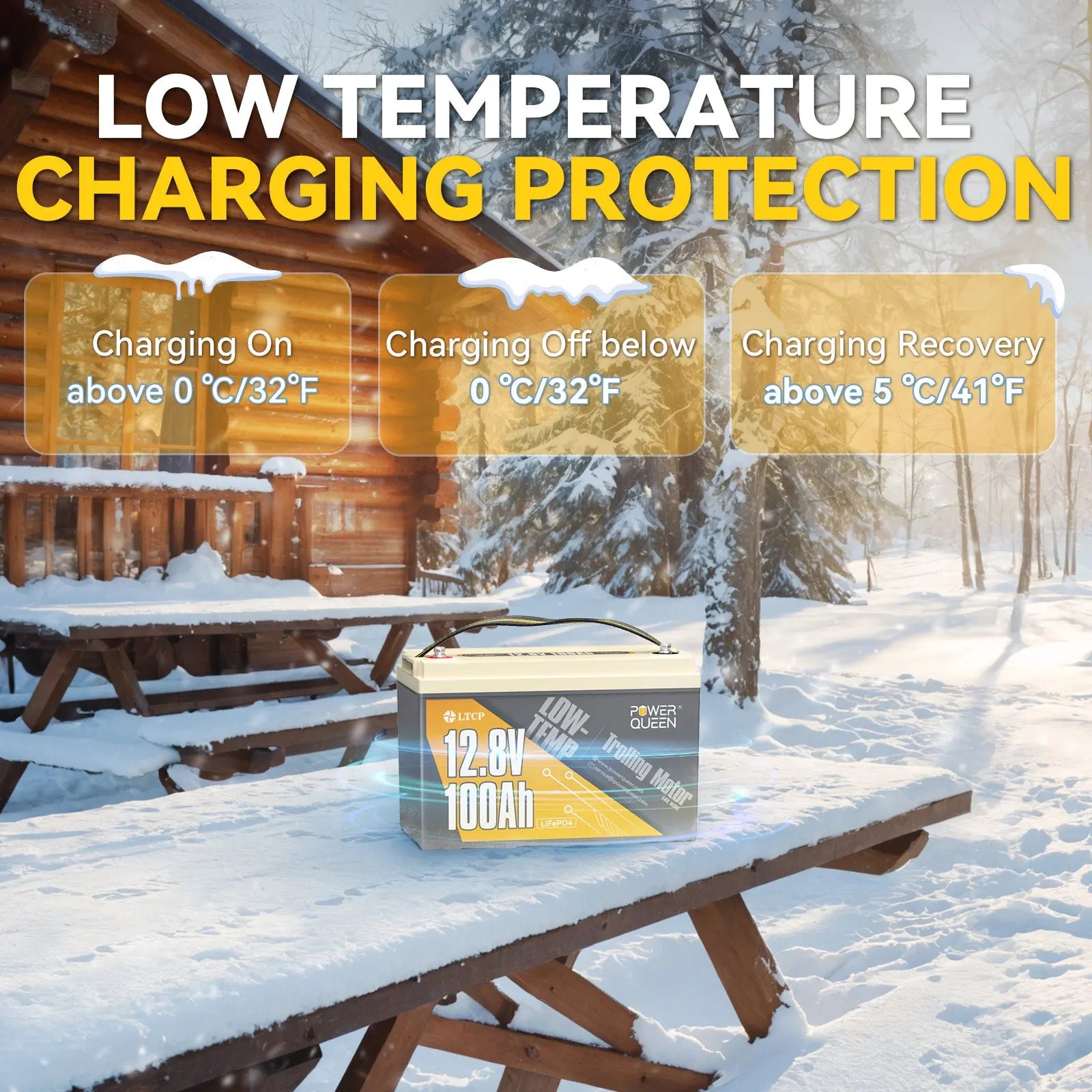
Related read: Why is Low-Temperature Protection Important to Lithium Batteries
2.4 Lead Acid Battery vs Lithium Ion Battery Charger
Lithium-ion battery chargers offer several key advantages over lead-acid chargers. Lithium chargers use both constant current and constant voltage, allowing for faster, more efficient charging, while lead-acid chargers typically operate with a slower constant voltage method. Additionally, lithium-ion chargers are designed to prevent overcharging, eliminating the need for a trickle charge that lead-acid batteries often require after a full charge.
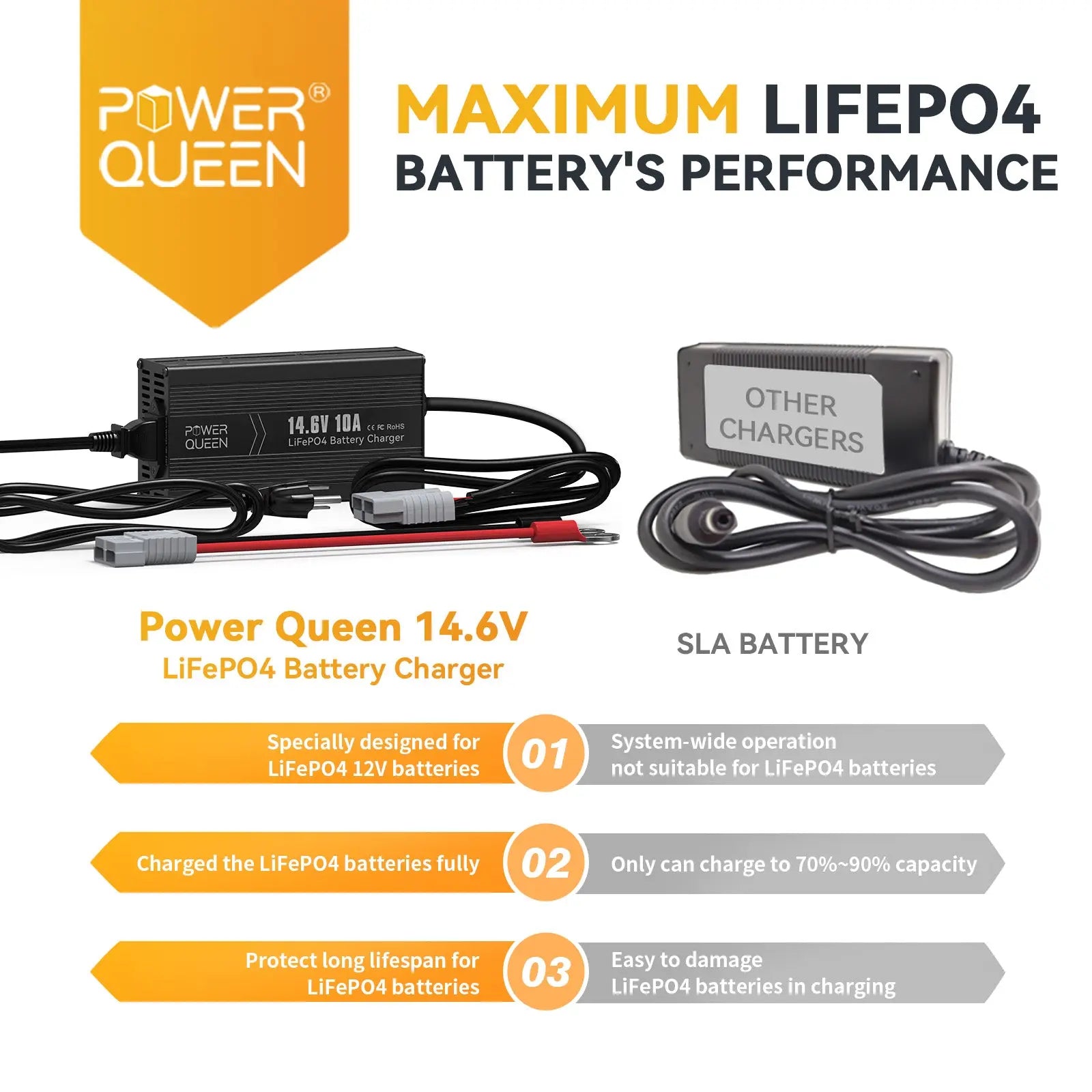
While lithium chargers require more specialized equipment, they maintain battery health better and are ideal for applications where quick and reliable charging is important. In contrast, lead-acid chargers are less efficient and more prone to overcharging if left connected too long. For optimal battery performance and longevity, especially in modern applications, a lithium-ion charger is the smarter choice.
Part 3. Why Lithium Batteries Are Better
- Longer Life: Lithium batteries last much longer than lead-acid ones. They can handle thousands of charge and discharge cycles while still maintaining a high capacity.
- Greater Efficiency: They charge faster and can release their energy quickly when needed. This makes them ideal for high-demand applications.
- More Power: Despite their smaller size and lighter weight, lithium batteries pack a more powerful punch, providing more energy from a smaller package.
- Lower Cost Over Time: Initially, lithium batteries might cost more, but their longer lifespan and better efficiency make them more cost-effective in the long run.
- Maintenance-Free: Unlike lead-acid batteries that need regular maintenance, lithium batteries require no water refills or active maintenance, reducing hassle and cost.
- Eco-Friendly: Lithium batteries have a smaller environmental impact. They are recyclable, and their long life reduces waste.
- Stable Performance: They perform well under various temperatures and maintain their charge for longer when not in use, making them reliable in many conditions.
By choosing lithium batteries, you're investing in a reliable, efficient, and cost-effective power source that outperforms traditional options like lead-acid batteries.
In conclusion, there are many advantages to choosing lithium batteries for your RV. With their longer lifespan, lightweight design, high energy density, and fast charging speed, lithium batteries are the perfect choice for RV enthusiasts. Take advantage of the power of lithium batteries and enhance your travel experience!
Part 4. Why Choose the Power Queen Lithium Battery
Power Queen lithium batteries outperform traditional lead-acid batteries with a longer lifespan and robust cycle capability, making them ideal for high-demand environments. They charge quickly and deliver powerful energy efficiently, ensuring devices and machinery operate without delays. These batteries are cost-effective over time due to their durability and lack of maintenance needs, unlike lead-acid batteries that require frequent upkeep. Power Queen batteries are environmentally friendly, recyclable, and produce less waste due to their extended operational life.
As you consider your next battery purchase, think of Power Queen lithium batteries. They offer the power, efficiency, and reliability to meet your energy needs in today's demanding world, proving to be a wise investment for both the economy and the environment.
Part 5. In Conclusion
In summary, lithium-ion batteries outshine lead-acid batteries in numerous ways. They have a longer lifespan, charge faster, and offer higher energy density. While their upfront costs are higher, the long-term savings and efficiency make them a better investment. Whether for RVs, solar systems, or other applications, lithium batteries provide reliable power and enhance your overall experience.
Part 6. FAQ
6.1 What is the Difference Between a Lithium Battery And a Regular Battery?
Lithium batteries and regular batteries, like alkaline batteries, differ significantly in performance and longevity. Lithium batteries may cost up to five times more than alkaline ones, but they often last eight to ten times longer. This extended lifespan means fewer replacements and lower long-term costs.
Additionally, lithium batteries maintain a stable voltage throughout their usage. In contrast, alkaline batteries gradually lose voltage as they deplete, leading to reduced performance. This makes lithium batteries a more reliable choice for devices that require consistent power. Overall, while the initial investment is higher, lithium batteries offer better efficiency and value over time.
6.2 What is an Advantage of the 12V Lithium Battery over a 12V Lead-acid Battery?
12V lithium batteries offer several key advantages over 12V lead-acid batteries. First, lithium batteries have a much lower self-discharge rate, allowing them to retain up to 100% of their charge for over a year when fully charged. In contrast, lead-acid batteries can lose up to 30% of their capacity each month due to self-discharge.
Additionally, lithium batteries are lighter and more compact, making them easier to install and transport. They also have a longer lifespan, often lasting up to 10 years, while lead-acid batteries typically last only 3 to 5 years.
Finally, lithium batteries charge faster and are more efficient, providing consistent power throughout their usage. Overall, these advantages make 12V lithium batteries a superior choice for many applications.
6.3 How long Do 48-volt Golf Cart Batteries last?
A typical 48-volt golf cart battery lasts 5 to 7 years, depending on how well it's maintained. Regular charging, proper storage, and avoiding deep discharges are important to extending the battery’s life.
For longer-lasting performance, the Power Queen 48V lithium battery is a great choice. It offers 4,000 to 15,000 charging cycles, giving it a lifespan of over 10 years with minimal maintenance. If you want efficient, fast-charging power for your golf cart, this battery is built to deliver superior longevity.
